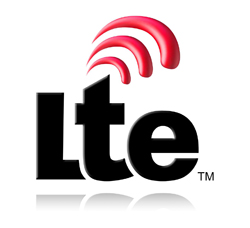Battery life will be the undoing of the next generation of smartphones, warns Farhad Manjoo at Pando Daily. He’s right, and that’s why for the next version of the iPhone, probably due out in the fall and probably not to be called the iPhone 5, Apple should pass on the opportunity to add fourth-generation LTE wireless.
 At least with current radio technology and networks, LTE is a terrible battery drain, a situation not likely to change much over the next few months. In the history of wireless, most new radio technologies have initially hurt battery performance and LTE is worse than most. Apple was smart to put LTE into the new iPad and will be smart to leave it out of the iPhone. (Daring Fireball’s John Gruber also speculates that Apple might skip LTE.)
At least with current radio technology and networks, LTE is a terrible battery drain, a situation not likely to change much over the next few months. In the history of wireless, most new radio technologies have initially hurt battery performance and LTE is worse than most. Apple was smart to put LTE into the new iPad and will be smart to leave it out of the iPhone. (Daring Fireball’s John Gruber also speculates that Apple might skip LTE.)
Why different treatment for the iPad and iPhone? Apple could satisfy the power demands of both LTE and the new high-resolution display by making the iPad a tad thicker and adding what iFixit calls “a hulk of a battery.” That’s a less attractive an option on the iPhone. Any increase in thickness would be much more noticeable on a phone than on a tablet. If Apple enlarges the height and width of the iPhone to accommodate a larger screen, it would gain some room for a bigger battery, but would also need more power for the display. In addition, an iPhone would probably spend far more time active on the LTE network than the more sedentary iPad, which can often do fine on Wi-Fi, which is much easier on the battery.
More significantly, the iPhone really doesn’t need LTE the way the iPad does. The iPad has a PC-like appetite for data. It takes a lot of bits to use all the pixels on that lovely screen to their maximum advantage and you want the screen to fill fast. There’s a big payoff for faster wireless. The iPhone is more of a data-sipper and does very well on a 3G connections, especially of the HSPA+ variety (which AT&T now confusingly calls 4G.)
The smaller the device, the greater the tradeoffs that have to be made in design. Personally, I’m not willing to sacrifice battery life for faster data on my iPhone, which can just get me through a long, busy day now. Nor do I want a bulkier phone to support a radio technology I don’t really need. The main pressure for LTE is coming from carriers, especially Verizon Wireless, that want to shift traffic to their newest network. Apple should resist, at least for one more generation.
You do realize apple figured out how to have a longer battery life with LTE in the new iPad. So they will most likely implement that technology into the next iPhone.
That technology is mostly a really big battery. And the handset form actor makes that a lot harder to do for an iPhone. You could do what Motorola did with the RAZR Maxx and make it a lot thicker, but that isn’t the Apple way.
It would be a stupid idea for Apple to skip LTE, because everyone would get upset and ditch apple for android
Excellent article! We will be linking to this particularly great article on our website. Keep up the good writing.